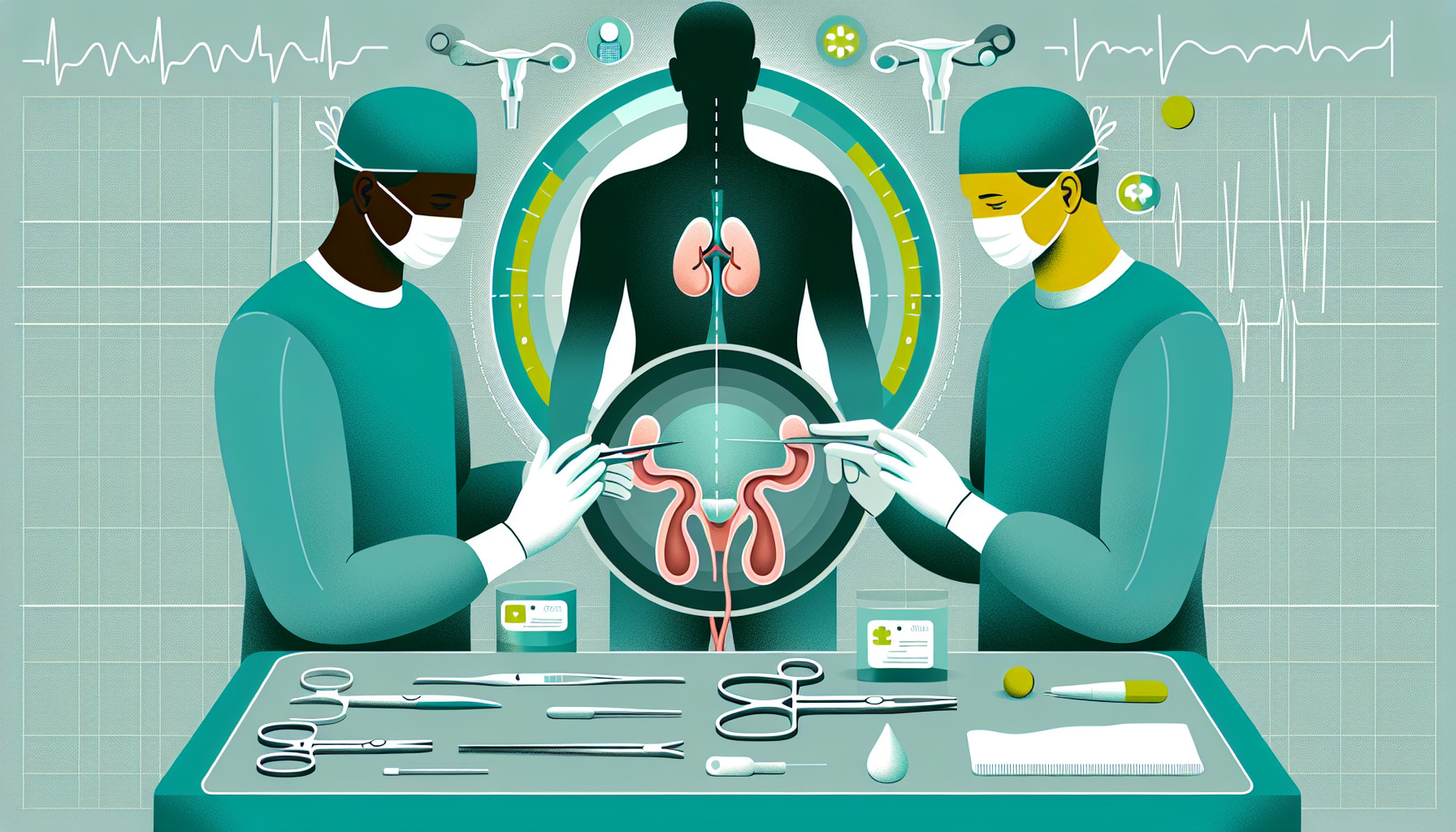Our Summary
This study focuses on the costs involved in two types of surgery for bladder cancer: open radical cystectomy (a traditional surgical method) and robot-assisted radical cystectomy (a newer, technologically advanced method). The researchers wanted to find out which method was more cost-effective. They took into account costs associated with different aspects of the surgeries, such as operating costs, robot-related costs, costs due to complications, and costs related to the length of the patient’s hospital stay.
The study found that the costs of robot-assisted surgery were generally higher than those of traditional surgery. The main reason for this was that the operating costs for robotic surgery were higher. However, the study also found that in hospitals where a large number of these surgeries were performed, the robot-related costs were a smaller proportion of the total costs. This suggests that performing more of these surgeries could help to offset the higher operating costs.
The researchers concluded that more research is needed to fully understand the cost-effectiveness of these surgeries. They suggested that future research should also consider factors such as the patient’s quality of life and lifespan following surgery.
FAQs
- What are the two types of surgeries for bladder cancer that the study focused on?
- Why are the costs of robot-assisted surgery generally higher than traditional surgery?
- What factors need to be considered in future research on the cost-effectiveness of these surgeries?
Doctor’s Tip
A helpful tip a doctor might tell a patient about cystectomy is to discuss with your healthcare provider the different surgical options available, including open radical cystectomy and robot-assisted radical cystectomy, to determine which option may be most suitable for your individual case. It is important to weigh the potential benefits and risks of each type of surgery, as well as consider factors such as cost and recovery time. Additionally, make sure to ask your doctor about any potential complications and what to expect during the recovery process.
Suitable For
Patients who are typically recommended cystectomy are those with bladder cancer that has not responded to other treatments, such as chemotherapy or radiation therapy. Cystectomy may also be recommended for patients with non-muscle invasive bladder cancer that has a high risk of progressing to a more advanced stage. Additionally, patients with recurrent bladder cancer or those with large, aggressive tumors may also be candidates for cystectomy.
Timeline
Before cystectomy:
- Patient is diagnosed with bladder cancer and discusses treatment options with their healthcare provider
- Patient undergoes various tests and imaging scans to determine the extent of the cancer
- Patient may undergo chemotherapy or radiation therapy to shrink the tumor before surgery
- Patient meets with a surgeon to discuss the surgical procedure and potential risks and complications
After cystectomy:
- Patient undergoes either open radical cystectomy or robot-assisted radical cystectomy
- Patient stays in the hospital for a period of time to recover from surgery
- Patient may experience pain, discomfort, and potential complications such as infection or blood clots
- Patient may need to undergo physical therapy or rehabilitation to regain strength and function
- Patient works with their healthcare team to manage any side effects or complications and monitor for signs of cancer recurrence
Overall, the patient’s journey before and after cystectomy involves undergoing various tests and treatments, making decisions about surgery, undergoing the surgical procedure, and receiving post-operative care and support to ensure a successful recovery.
What to Ask Your Doctor
What are the potential risks and complications associated with cystectomy surgery?
How long is the recovery period after cystectomy surgery?
Will I need any additional treatments or therapies following the surgery?
How often do you perform cystectomy surgeries, and what is your experience with this procedure?
Are there any alternative treatment options to cystectomy that I should consider?
What are the expected outcomes and success rates of cystectomy surgery for my specific condition?
Will I need any special accommodations or lifestyle changes after the surgery?
How long will I need to stay in the hospital after the surgery?
Are there any specific pre-operative preparations or tests that I need to undergo before the surgery?
What is the total cost of the surgery, including any potential additional costs or fees that may arise?
Reference
Authors: Morii Y, Osawa T, Suzuki T, Shinohara N, Harabayashi T, Ishikawa T, Tanikawa T, Yamashina H, Ogasawara K. Journal: BMC Urol. 2019 Nov 8;19(1):110. doi: 10.1186/s12894-019-0533-x. PMID: 31703573
